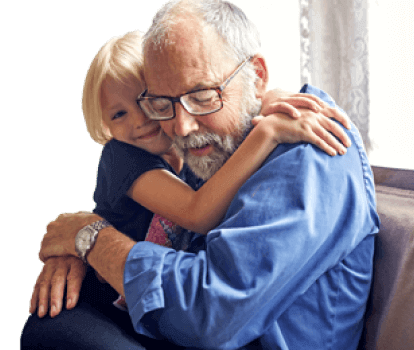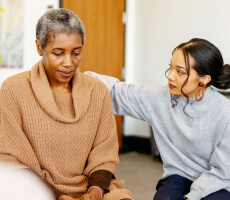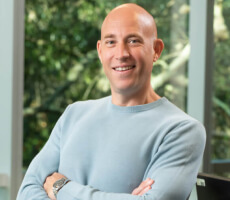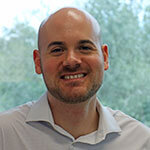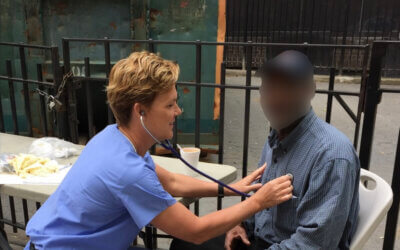Grief in Children: Top 5 Ways Bereavement Camps Can Help
A bereavement specialist and a former camper share their experiences and why they believe bereavement camps offered through Chapters Health System can make a difference for children grieving the loss of a loved one.
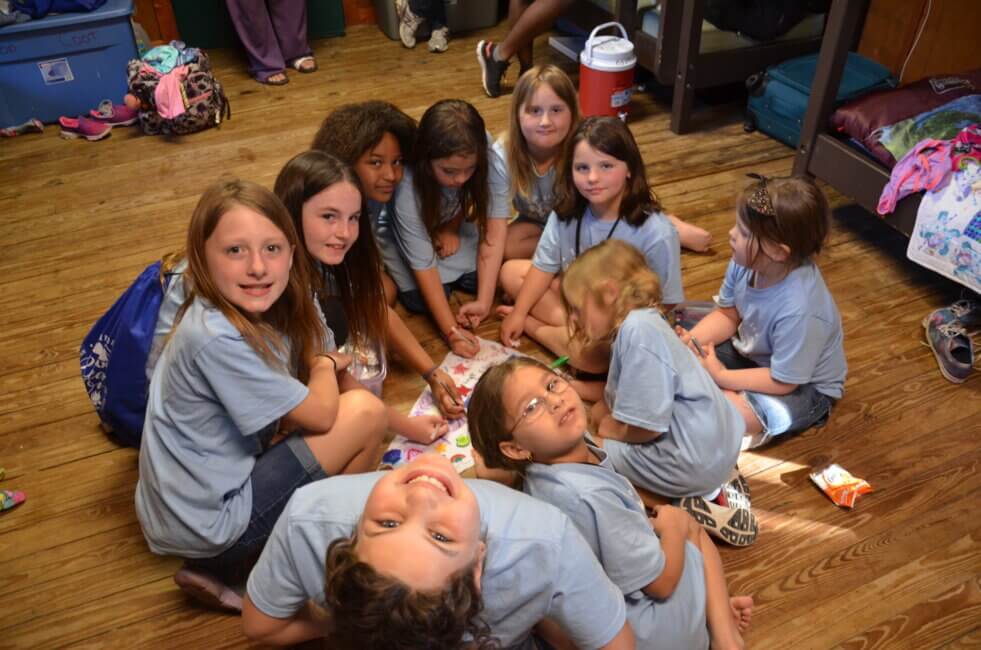
Grief is a strong and overwhelming emotion, regardless of whether that sadness stems from the loss of a loved one or from a terminal diagnosis you or someone you love received. As one Chapters Health System chaplain explained, “Grief is sometimes lethal. It doesn’t play fair, and it comes out of nowhere.”
When faced with grief, children react differently from adults. For preschool children, death may be viewed as temporary or reversible. A belief possibly instilled by cartoons and fairytales. Older children have a better understanding of death, but they are not as emotionally developed as adults, causing them to grieve multiple times through different developmental stages of life. According to a childhood bereavement estimation model from Judi’s House for Grieving Children and Families, one out of 12 children in Florida will suffer the loss of a parent or sibling by age 18. Other states have even more heartbreaking statistics, such as West Virginia, where more than 11 percent of children are expected to suffer this loss. The highest in the nation.
Bereavement Camps
So, how do those children overcome grief? How can their parents help them heal? Children’s bereavement camps through the Florida affiliates of Chapters Health may provide the answer. For LifePath Hospice in Hillsborough County, it’s Camp Circle of Love. For Good Shepherd Hospice in Polk, Highlands and Hardee counties, it’s Camp Brave Heart. For HPH Hospice in Hernando, Pasco and Citrus counties, Camp Reach Out.
All the camps are similar in the ways they help children overcome their grief, but each experience is unique and powerful in its own way. A bereavement specialist and a former camper explain how that experience can help children in five ways.
1. Constant Attention to Grief
Unlike weekly or monthly visits with a bereavement specialist or grief support group, the children’s bereavement camps at Chapters Health span two days. For an entire weekend, the campers address their feelings and process them in healthy ways through games, crafts and team-building activities designed to encourage healthy emotional expression.
“Everyone is there for the same reason,” said Corinne Gaertner, bereavement specialist with LifePath Hospice. “You know why you are there. There are breaks where the kids have fun playing games, sports and going on hayrides and things, but you never lose sight of why you are there.”
According to the Cleveland Clinic, there are 13 ways to navigate grief. The children’s bereavement camps at Chapters Health can provide at least eight of them.
Campers can expect plenty of play time and activities that encourage storytelling about their loved one. This allows children to talk about loss from a safe mental distance, allowing them to verbalize and process their loss. Meanwhile, trained bereavement specialists and volunteers guide children through the activities to encourage engagement with the most withdrawn campers. Stefany Peralta, a former camper and social work intern for Chapters Health, attended the Circle of Love camp in 2012 after her mother, Margarita, passed away from lymphedema caused by ovarian cancer. She said one of the activities is simple, yet powerful.

“As a camper, the most special moment for me was writing a letter to my mom behind our cabin, by the lake, and looking out toward the beautiful scenery,” said Peralta. “I feel closest to my mom when I’m there. So, it has become an annual tradition writing that letter year after year, where I talk to her about what’s been going on in my life and how I feel. Burning that letter in the campfire during the memorial service, symbolizes airmail delivery of things left unsaid.”
2. Normalize Grief
Many times, it may be difficult, especially for a child, to talk about grief and the powerful emotions that come with it. Facing those emotions may make some feel uncomfortable. At the children’s bereavement camps, Peralta said those emotions are normalized.
“Camp was a place where it was okay to have mixed feelings of guilt, sadness, anger and happiness, a place where it was okay to cry, a place where I was not alone in my grief. I could begin to feel at peace with everything I had experienced.”
“It’s a safe place where you can still be a kid,” said Gaertner. “It helps to normalize your grief. Everyone there is in the same boat. They’ve all lost someone they love.”
It’s important to remember that grief is a complicated subject and everyone grieves differently after the loss of a loved one. According to a study in 2016, participation in bereavement groups did not produce any measurable effects on grief, anxiety or depression in comparison to non-participants. However, many participants in that same study reported positive effects that could not typically be measured, such as deeper insight into the grieving process and a feeling of joint experience in grief.
3. Reaching More Kids
It doesn’t matter why the children are grieving. A hospice provider organizes the camps, but not all the children attending them experienced a loss in the hospice setting. The camps allow bereavement specialists to reach more kids in need of grief support.
“Absolutely, 100 percent. That is the bulk of our campers,” said Gaertner. “Maybe 50 of the campers experienced a loss through hospice, but there is about 100 plus campers at the camp.”
4. Don’t Forget the Adults
“One thing I tell parents when they are talking about Circle of Love or having their kids go to camp, if the kids go and really feel a change, it’s hard for them to continue that healing process if everything at home is the same,” said Gaertner.
While the camp itself is reserved for children, Camp Circle of Love holds a send-off ceremony where parents and guardians can connect and share their grief experiences in a campfire setting.
As always, grief support for individuals and groups of any age are always available, either in-person or virtual. You can find schedules, contact information and locations for various affiliates here.
5. Growth Over Stagnation
Grief is a powerful emotion, unlike any other. If it’s left unaddressed, it can lead to depression, stagnation and worsening health according to findings by the Mayo Clinic. With guidance, grief can lead to tremendous growth and discovery. For Peralta, it was the latter.
“As luck would have it, Sheriff Chad Chronister of Hillsborough County and his wife, Nicole DeBartelo, were so inspired by my story that they offered to pay for my master’s degree in social work. I still cannot believe that I have already finished my first year of grad school at Florida State University, and now my life is coming full circle by being able to intern with LifePath Hospice this semester. It’s all so surreal. It has even inspired me to potentially become a bereavement counselor myself someday.”
So, take it from one happy camper. One weekend can make a world of difference.
Chapters Health System is committed to serving the needs of its patients, families, caregivers, health providers, partners and communities.
For more information, please call our helpful Chapters Health and HospiceHelp24® team at 1.866.204.8611 or Contact Us.
Keep Exploring


